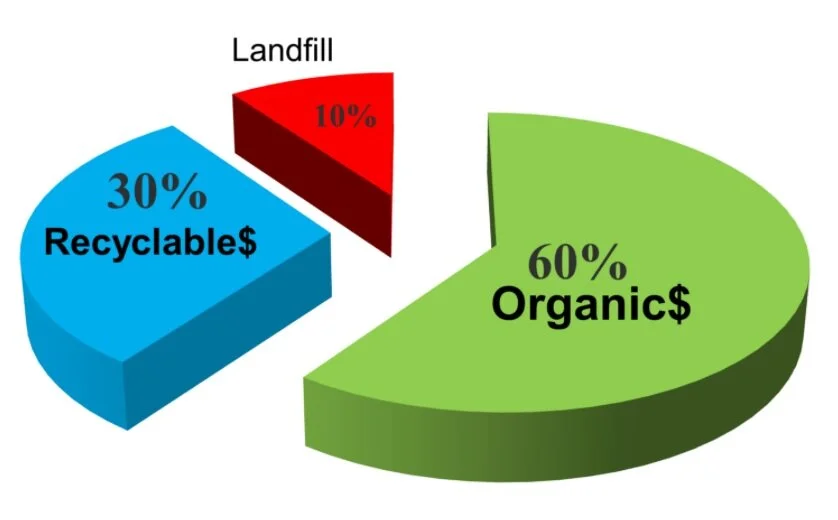Ecological Benefits
Stop paying for wasted fuel, tons of greenhouse gasses, polluted water and long-term liability.
Sustaining Organics provides Accelerated Biological Organics Processing (ABOP) technology and guidance. By protecting the environment, we protect all people and bring sustainability to those that need it the most. One of the largest threats to our environment is our waste and Sustaining Organics offers a solution for our waste induced crisis. Future generations, including our children and grandchildren, will not have our quality of life without a solution.
Everyone would utilize conventional composting if it weren’t so expensive and ineffective at addressing our sustainability goals. Conventional composting is not local, uses huge amounts of energy and costs more than simply discarding the materials. ABOP addresses these and other shortcoming of the systems that are being widely used and produces humus. Humus is the most important ingredient in soil and soil organic matter is the reservoir of nutrients for crops.
Humus makes up about 50% of the soil organic matter. The best soils found in nature are usually less than 5% soil organic matter. Even though it only makes up a couple percent of a soils volume, soil organic matter is absolutely essential for soil health. Replacing humus is essential to repair depleted soil and reverses the damage of irresponsible or unsustainable resource utilization. ABOP provides the humus that can heal the wounds of the past ecological transgressions and replaces essential components of depleted soil. Repair of soil resources is essential for sustainable operations, a local circular economy and a nutritious food supply. Humus is what nature needs and it is essential to allow the soil environment to resist weathering and erosion. It is a critical tool that allows fertilizers to be effective and to retain fertilizers within the soil environment. Humus is the cornerstone for the physical, chemical, and biological well-being of soil and is essential for sustainable food production and optimal harvest capabilities.
Currently the majority of our organic resources, which are essential for a sustainable ecological system, are being discarded. The discarded material is handled in such that it creates intense greenhouse gases. This results in even further ecological disruption and degradation. It takes hundreds of years for nature to form one inch of humus. Accelerated Biological Organics Processing and nature, working together, do it in 40 days.
“Soil formation takes a long time, about 1900 years for the top 6 inches!”
— Dr. Sally Brown
Our food supply becomes unsustainable when we waste soil and organic resources. With ABOP you can transform the organic material you’re now throwing away into humus in 40 days. Diversion of organic material is by far the largest contribution individuals can make to protect and sustain our environment (the environment our children will have to survive in). With organic diversion and conventional recycling it is possible to protect and sustain more than 90% of the resources that we are using. The most important point to be made here is that the public will engage in solutions that actually work. ABOP provides real time results and the costs, both financial and ecological, are far less than they are currently paying.
By putting organic resources back into a sustainable local cycle, we offset the damage of past abuse as well as minimizing the damage that is currently being done. Humus can transform barren, lifeless material into a flourishing soil environment.
With biological control and optimizing natural microbes, it is possible to biologically deactivate toxins and contaminants. The same technology that quickly and sustainably processes waste into valuable products also protects humans from contamination and man-made ecologically damaging material. Threats from diseased or other undesirable materials are naturally eliminated by the intense biological activity that provide cost effective and safe waste processing. Local, sustainable and cost-effective processing of organics provides a protective, sustainable, circular response to our environmental needs.
Landfill failure poisons the resources landfills were supposed to protect. Water, air and soil resources are contaminated by putrefaction of your stored waste. You can now divert most of what is landfilled into profitable, needed material. Most of what you throw away is organic. When organics are diverted, the other recyclables are more valuable and less contaminated and the planet is protected.





